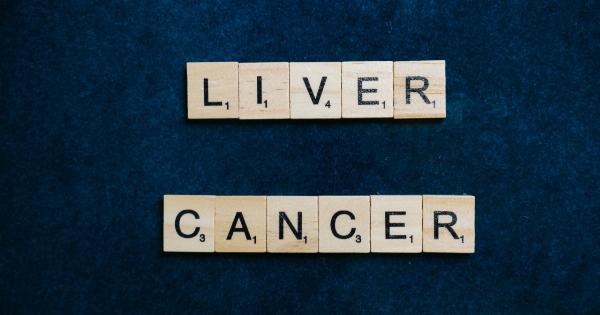Liver cancer is a serious and deadly disease that can develop due to a variety of factors. One of the significant risk factors for liver cancer is excessive alcohol consumption.
According to research, alcohol consumption can cause liver cancer, and the amount of alcohol consumed daily can impact individuals’ risk for developing liver cancer.
How alcohol affects the liver?
Alcohol consumption can cause significant damage to the liver over time. The liver is responsible for filtering out toxins from the body, including alcohol.
When individuals consume alcohol regularly and excessively, it can cause inflammation and scarring of the liver tissue, which is known as cirrhosis. Cirrhosis can lead to liver cancer if left untreated.
Recommended alcohol intake
Experts recommend limiting alcohol intake to reduce the risk of liver cancer. As per the guidelines, men should not drink more than two drinks per day, and women should not drink more than one drink per day.
The recommended limit for men is higher due to the differences in the way men and women process alcohol.
Effects of excessive alcohol intake on the liver
Excessive alcohol intake can cause the following effects on the liver:.
- Increased inflammation
- Scarring of liver tissue (cirrhosis)
- Fatty liver disease (accumulation of fat in liver cells)
- Increased risk of liver cancer
How many drinks a day can cause liver cancer?
Studies show that there is a direct correlation between the amount of alcohol consumed daily and the risk of developing liver cancer.
According to the World Cancer Research Fund (WCRF), consuming three alcoholic drinks or more daily can increase the risk of developing liver cancer significantly. This risk is more significant in individuals who already have liver cirrhosis or hepatitis B and C infections.
Other risk factors for liver cancer
Apart from excessive alcohol intake, other factors can increase an individual’s risk of developing liver cancer. The risk factors include:.
- Chronic viral hepatitis B or C infections
- Fatty liver disease
- Exposure to aflatoxins (a type of toxin produced by mold)
- Obesity
- Type 2 diabetes
- Family history of liver cancer
Symptoms of liver cancer
Liver cancer does not often manifest symptoms at an early stage. However, as the disease progresses, individuals may experience the following symptoms:.
- Abdominal pain or swelling
- Unexplained weight loss
- Loss of appetite
- Fatigue
- Nausea or vomiting
- Yellowing of the skin or eyes (jaundice)
Prevention and early detection
Apart from limiting alcohol intake, individuals can take the following steps to prevent liver cancer:.
- Get vaccinated against hepatitis B
- Take precautions to avoid hepatitis C infection
- Maintain a healthy weight through diet and exercise
- Reduce exposure to toxins like aflatoxins
Early detection is crucial in treating liver cancer. People at high risk of liver cancer should get regular check-ups and screening tests, including ultrasound, MRI, CT scan, or liver biopsy.
Conclusion
Liver cancer is a serious disease that can develop due to various risk factors, including excessive alcohol consumption. The amount of alcohol consumed daily can significantly impact an individual’s risk of developing liver cancer.
It is essential to limit alcohol intake and take precautions to prevent liver cancer’s development. Early detection is crucial in treating the disease, so individuals at high risk should get regular screenings and check-ups.




























